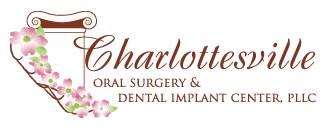27 May Diagnosing and Treating Obstructive Sleep Apnea
Obstructive Sleep Apnea is one of the more severe sleep disorders because it affects your ability to breathe while you are asleep, a time when you are unconscious and unable to help yourself. It is a condition that is difficult to self-diagnose and virtually impossible to manage on your own.
There are a number of very effective treatment options that are designed to address your symptoms as well as improve your health. The first step, however, is to make yourself aware of the obstructive sleep apnea warning signs and then, many dentists will refer you to an sleep apnea specialist, such as an oral surgeon.
There are various forms of sleep apnea, but as the name implies, an obstructive apnea is one in which oxygen is prevented from entering the body due to a blockage in the nose or throat. The interesting fact about this form of sleep apnea is that the blockage, or obstruction, is not caused by a foreign object. Instead it is caused by flabby or excessive tissue in the back of the throat, the relaxed muscles of the tongue, or an anatomically narrow and constricted airway.
An important aspect of your diagnosis and treatment will be influenced by the ability of your oral surgeon to identify the source of the obstruction and then render the appropriate form of care. This diagnosis will be partly based on your own input:
- Have you been told that you snore loudly or make a choking sound when you are asleep?
- Do you awake feeling as though you never went to sleep?
- Are you groggy, irritable, or unable to concentrate during the day?
- Do you feel as though you could fall asleep while driving?
- Do you suffer from obesity, heart disease, or other chronic health problems?
Armed with this information, your oral surgeon can conduct a series of diagnostic tests to determine if an obstruction is present and to evaluate your oxygen intake. If an obstruction is diagnosed, the treatment may range from a simple breathing appliance that can be used at night, to a surgical procedure designed to reshape the constricted airway. Many of the surgical procedures can be performed with lasers or other sophisticated and modern techniques that are safe and minimally invasive.
For more information about the diagnosis and treatment of obstructive sleep apnea, contact our experienced and dedicated team today. Call 434-295-0911 to schedule your professional consultation.
